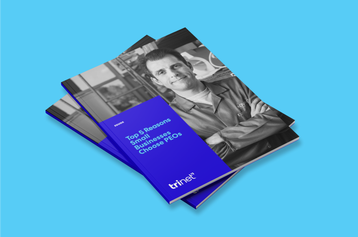What is a Mental Health Day? Everything You Need to Know

Table of contents
- 1.What is a mental health day?
- 2.Mental health and the workforce
- 3.The cost of poor mental health
- 4.What causes such high stress for employees?
- 5.8 reasons you should offer mental health days
- 6.Opens conversations about mental health
- 7.Combats burnout
- 8.Increases morale
- 9.Boosts productivity
- 10.Prevents and reduces sick days
- 11.Increases staff retention
- 12.Creates a more robust health insurance package
- 13.Improves overall reputation
- 14.How to create a mental health day policy
- 15.Define mental health day options at your organization
- 16.Outline the rules
- 17.Create a balanced mental health strategy as prevention
- 18.Let employees know about the organization’s mental health day policy
- 19.How to codify mental health days at your company
- 20.Should mental health days count as vacation days?
- 21.Should mental health days count as paid sick time?
- 22.The bottom line on mental health days
Mental health has become an important topic in the HR world, and for a good reason. Most everyone has learned that people can give their highest-quality work only when they are both physically and mentally healthy. In this guide, we'll explore the workplace policies that promote emotional well-being and support mental health days, as well as ways to approach this new, much-needed kind of benefit.
What is a mental health day?
A mental health day is similar to sick leave. It’s a day off of work for an employee to invest in self-care and recover from potential mental health issues. This day can be paid or unpaid.
It’s important to note that the reason for a mental health day may not relate to work. Pressures from outside of work—such as physical illness, family disputes, overwork from domestic chores—all can lower mental health and reduce focus in the office.
A mental health day policy gives employees a chance to resolve issues or even just get a break from the stress. It can help employees feel less guilty about self-care and help them use their time off wisely. The way your company structures your mental health day policy will differ based on your organization’s needs and resources.
Mental health and the workforce
When we first think of poor mental health, it’s common to imagine a serious mental illness. Complications with depression, anxiety, bipolar disorder, and other mental disorders are common reasons for people to need a sick day. According to the National Institute of Mental Health, 1 in 5 adults in the U.S. suffers from some type of mental illness.
Formal diagnosis of problems should be left to mental health professionals. But employers can look for signs that employees may be experiencing mental health issues, such as:
- Poor eating habits.
- Poor sleeping habits.
- A drop in productivity, inability to perform daily tasks, and/or mental disengagement.
- Excessive or explosive conflicts with coworkers.
- Frequently ill and sneezing, coughing, and having stomach problems, and taking frequent bathroom breaks.
- Showing abrupt changes in appearance, usually for the worse. They may look exhausted and struggle to stay awake at meetings or engage in conversations.
A condition can also be short-term or long-term. It might develop immediately after a precipitating event or long afterward. Or it may not be connected to any discernible event. For example, after losing a close family member, a worker might fall into depression at work months later.
All of these warning signs can point to problems that deepen and become even larger mental and physical health problems. Spotting these signs of a worsening mental condition can prevent more trouble from developing.
The cost of poor mental health
Here are some sobering statistics that may remove any doubts about the seriousness of mental health in the workplace:
- 76% of workers in a 2021 Mind Share Partners’ survey said they'd had a mental health problem in the previous year, and about half said they'd left a job in part because of a mental health situation.
- According to the National Safety Council, employers pay $15,000 annually in healthcare treatment, lost productivity, and turnover related to employees who experience mental distress. Also, workers suffering from depression are more prone to developing other serious health problems. This can mean higher health care premiums for employers.
What causes such high stress for employees?
Stress is the body’s reaction to harmful conditions, whether real or imagined. Burnout is mental, emotional, or physical exhaustion. Unchecked and untreated, both conditions can cause a range of serious chronic health disorders. Understanding workplace stress and ways to ease it can help employees prevent burnout and maintain better overall well-being.
What causes burnout for an employee? Some of the most common causes include:
- An excessive workload.
- Perceived lack of control on the employee’s part.
- Lack of intrinsic or extrinsic rewards that match the time and effort put in.
- A lack of community to offer support.
- A lack of fairness and recognition from leaders/managers.
- A mismatch in values between the employee and the company.
8 reasons you should offer mental health days
Confused about why or how you can offer mental health days to your employees? We’ve got a list for that.
1. Opens conversations about mental health
Let people know that it is OK to struggle and that you are there to help them get the support they need. Fostering an internal culture that is accepting of mental health issues starts with allowing people to take days off to care for themselves. “How can I support you?” is an incredibly powerful question that more employers need to ask. Raising awareness about resources makes people more comfortable reaching out when they need help.
2. Combats burnout
The only real way to interrupt burnout is by interrupting the cycle that is perpetuating that exhaustion. Ideally, you want your employees to ask for time off before the burnout becomes unbearable. That way, you might prevent them from completely shutting down and collapsing from severe burnout.
3. Increases morale
It is simple: Employees will be more driven and more excited to work for companies that treat them better. Honor them as human beings who have thoughts, fears, and struggles that extend beyond the workplace.
Establish your organization as one that takes mental health issues seriously and has relevant offers and programs available for employees who need them.
4. Boosts productivity
Employees with mental health problems become less productive due to absenteeism, turnover, and general stress. Mental illness can also disrupt peer communication and community building.
Mental health benefits can help employees improve their coping mechanisms while decreasing their risk of physical illness. Employees who are more content also communicate better with their managers, their team, and other departments. All of these details contribute to higher productivity, which also means a better bottom line.
5. Prevents and reduces sick days
Offering mental health days can actually prevent sick days. Many people experience stress on a physical level. What this means is that you and your employee end up spending more for healthcare in the long-run if their problems are not addressed. Employers who invest in mental health benefits are also reducing threats to their employees’ physical health and long-term healthcare spending.
6. Increases staff retention
If your company struggles with high employee turnover, it’s important to figure out why. One thing to examine is the specific reasons people give for leaving.
- Are they feeling way too stressed or overworked?
- Are they punished harshly for being a tad late or struggling to stay productive?
- Is your company a safe place for them to air concerns, express frustrations, and verbalize burnout concerns?
- Do they have the support they need?
These problems can be mitigated by offering mental health days.
7. Creates a more robust health insurance package
A health insurance package that accounts for and includes mental health support is attractive to prospective employees and can help bring in a higher caliber of talent.
Most of the time, though, these offerings can feel pretty vague. With that in mind, you may be asking, "What does ‘mental health support’ actually mean?” Well, it can mean a number of things. Access to therapy or counseling is a common offer that ensures mental health support. No matter what you offer, state it clearly.
8. Improves overall reputation
An organization with a reputation for treating its employees well and accounting for their mental health is one that will earn respect both inside and outside of its headquarters.
You want people to look at your company and admire the steps you have taken to care for the people who work for you. You want to be known as an employer who views your employees as human beings and not just cogs in a machine.
How to create a mental health day policy
Mental health is no longer plagued by the stigma that caused people to deny, hide, or refuse to talk about it. Employers are helping remove the stigma by encouraging employees to take time off to regroup mentally. Good mental health isn't just a perk, it's a necessity to do any job well.
To craft your unique mental health day benefit, follow these 4 steps:
1. Define mental health day options at your organization
The first thing is to define what a mental health day will look like at your business. Is it paid? Unpaid? How does it fit in with sick leave and vacation time? Here are some options to choose from:
- Unpaid leave. The easiest, lowest-cost option is to simply allow employees unpaid sick leave on top of any mandatory paid leave policies. If the condition is serious, i.e., requires in-patient care or ongoing treatment, unpaid leave must be offered according to the Family Medical Leave Act (FMLA). The downside is that an employee might decline to lose pay to take a mental health day.
- Paid time off (PTO). If you already have a PTO plan in place, just remind your workers that they can use these days for their mental health needs, too.
- Disability coverage. You may provide short-term disability insurance to employees for emergencies, including mental health leave.
- Americans with Disabilities Act (ADA). According to the ADA, employers must provide accommodations for workers with disabilities, including mental disorders. Providing sick leave for mental health conditions is a way to stay compliant.
Keep in mind that some states have paid leave laws that include mental health conditions. Check out this interactive map provided by the DOL that outlines which states have these laws.
2. Outline the rules
Once you’ve decided on the general structure and compliance considerations, it’s time to examine the policy itself. At this point, you’ll want to look at:
- Employee eligibility.
- Amount of days for mental health leave.
- How to request leave.
- Whether or not the days are paid or unpaid.
Generally, it’s better to apply these days to all employees for a standardized and compliant process. Many employers extend this benefit to full-time workers, although you can offer it to part-timers, too.
In addition, it’s important to consider that mental health isn’t something an employee can plan ahead of time. It’s better to assume that this will be an emergency leave. For that reason, keep the reporting process as short and private as possible.
But the big question is: How many days should an employee be able to take off for mental health issues? One week (five work days) is a great place to start. If you offer unlimited PTO and don’t differentiate between different types of leave, it’s important to let employees know that they can use their days for stress management and mental health recovery.
Finally, it’s best to keep these leave requests on a “no questions asked” footing. Many people don’t want their employers to know the details of their inner lives, especially in difficult moments. This ensures employee privacy and makes it more likely they will take advantage of this benefit.
3. Create a balanced mental health strategy as prevention
Mental health benefits offer an extra level of support to employees whenever they require it. And it provides significant returns for businesses.
The cost of supporting your employees with mental health benefits can be affordable. But there are other mental health friendly strategies that can help your employees cope:
On a personal level:
- Ensure that individual workloads are manageable.
- Check in with employees regularly.
- Over-communicate with employees to ensure they are clear on roles and expectations. Make sure they feel comfortable coming to you to express concerns.
- Emphasize the importance of physical health and nutrition.
- Watch out for unfair treatment or discrimination.
On a more company-wide scale:
- Consider setting up an Employee Assistance Program (EAP).
- Offer health insurance that includes mental health coverage. Provide a list of mental health providers that are in your insurance network.
- Invest in mental health apps for telemedicine, meditation, or other wellness programs.
- Offer flexible work situations to reduce stress.
- Provide childcare services.
- Offer flexible scheduling.
Make sure that your employees are aware of your mental health offerings. And while mental health benefits and strategies are a significant part of the solution, what really matters is company culture. If you build a culture around caring about your employees, mental health issues are easier to identify in the office.
4. Let employees know about the organization’s mental health day policy
Finally, it’s critical that employees know about the mental health benefits you’ve invested in. Your mental health day policy should be included in the employee handbook and benefits documentation.
And may not want to approach employees who seem to be struggling, you can include mental health awareness tips in an employee newsletter every so often, with a reminder that mental health care is a valid reason for short-term leave.
How to codify mental health days at your company
With a better understanding of what mental health days are and why they are crucial, it becomes even more important to determine how to account for them within an organization’s HR department and employee time tracking system.
Should mental health days count as vacation days?
Many organizations count mental health days as part of an employee’s allotted vacation time. However, this might be the wrong path.
Counting mental health days ash vacation time perpetuates the myth that all someone needs here is some time away from the office. The truth is very different. Often, these are individuals in crisis who need specialized care to recover.
In that sense, this time off is more like sick time than vacation time. However, there is a spectrum here, and some employees may only need time to cope with stress to improve their job performance and productivity. It may be necessary to introduce a gradient curve that treats different mental health needs individually.
For instance, the Department of Labor announced in 2022 that some mental health problems qualify as serious health conditions under the Family Medical Leave Act (FMLA). The FMLA guarantees up to 12 weeks of unpaid leave for eligible employees. So, employers could account for anxiety, depression, and other very serious conditions in this way.
However, that leaves workers unpaid. This means that many will be less likely to take the time they need because they cannot afford time without pay.
Should mental health days count as paid sick time?
Another option is to have the employee use paid sick time, because most state and local paid sick time laws cover both mental and physical health conditions.
Organizations will need to define what constitutes a mental health condition and what is classified as an occupational phenomenon. For instance, burnout would fall under the latter category in most cases, while depression (even if it originated from burnout) would fall under the former category.
What is clear is that employees should not be required to use their vacation time to recover from mental health issues. They should be able to use sick time or another form of paid leave to ensure that they can get the care they need without taking away from their available vacation time.
The bottom line on mental health days
Mental health has become a larger discussion on a global scale. It impacts every aspect of our world, but particularly our workplaces. Whether it's World Mental Health Day, Mental Health Awareness Month, or just a regular Tuesday in January, every person in your company deserves access to proper health care. As an employer, one of your overall objectives should be bolstering the well-being of your staff.
Need a partner in developing and administering HR services and benefits that can help boost your employees' mental health? TriNet is your solution for outsourcing HR services. To find out how TriNet's comprehensive services and offerings can jumpstart your efforts towards empowering happy, healthy, and productive employees, contact a representative today.

TriNet Team
Table of contents
- 1.What is a mental health day?
- 2.Mental health and the workforce
- 3.The cost of poor mental health
- 4.What causes such high stress for employees?
- 5.8 reasons you should offer mental health days
- 6.Opens conversations about mental health
- 7.Combats burnout
- 8.Increases morale
- 9.Boosts productivity
- 10.Prevents and reduces sick days
- 11.Increases staff retention
- 12.Creates a more robust health insurance package
- 13.Improves overall reputation
- 14.How to create a mental health day policy
- 15.Define mental health day options at your organization
- 16.Outline the rules
- 17.Create a balanced mental health strategy as prevention
- 18.Let employees know about the organization’s mental health day policy
- 19.How to codify mental health days at your company
- 20.Should mental health days count as vacation days?
- 21.Should mental health days count as paid sick time?
- 22.The bottom line on mental health days






